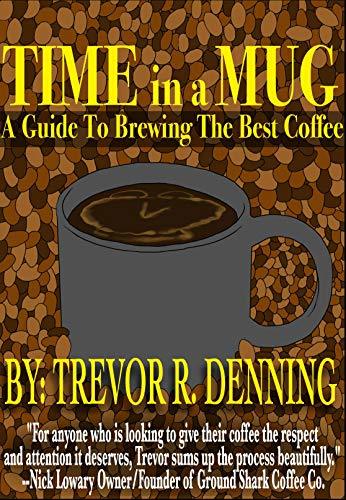Coffee has been a significant part of my life. In college I drank vats of the stuff, not to keep me up all night (I didn’t pull an all-nighter until after graduation), but to keep me going after shoveling snow all morning. Those winters I probably drank a gallon a day. Later learned the craft of making good coffee, and when I inevitably got a job in a coffee shop I ended up doing as much teaching during training as learning. After leaving that job, I spent the next 18 months roasting.
I even wrote a guide on brewing the best coffee: available here.
The guys on the Doctrine and Devotion podcast recently interviewed their church’s coffee roaster (the man, not the machine). And really, shouldn’t every church have a designated roaster of coffee? I mean, there’s an entire book in the Bible titled Hebrews, and there’s nothing for said he to brew if there’s no coffee.
Not even sorry.
It’s a surprisingly wide ranging interview, as roaster Eric Anderson explains how he gets the green beans, the process of roasting, and how different origins have different flavors, before the guys dig into why coffee matters. And why good coffee really matters, even at church. Let’s be honest, most church coffee is terrible. I’ve had better brews at gas stations and truck stops. But in our culture we’ve given coffee meaning, and at the same time think it’s okay to offer less than the best.
Everyone who knows good coffee remembers their first good cup.
A friend and I were looking for a quiet place to do some writing, and a new coffee shop had just opened. The owner, a white haired guy with hipster glasses, explained the process of pour-over coffee with such passion I had to give it a try. It was the smoothest coffee I’d ever had. I didn’t even know coffee could be smooth! By that point I knew about the importance of fresh ground coffee and how autodrip machines didn’t do a great job. But as much as I liked (and still do like) French pressed coffee, this was something remarkable.
When we going through the stress of moving, stopping to do a pour-over was my centering ritual.
These days I’m using my French press more than anything, and I find that while it’s brewing is a good time for thinking through writing projects or prayer. Good coffee, like good art, can’t be rushed. The care and attention that goes into handmade coffee really does come through in the cup, as it requires much more attention to detail than dumping some Folgers and water into a machine.
Even if you use a machine, small batch roasting makes a difference.
I like to know my roaster’s name. If I can know that, I can be assured that the beans haven’t been sitting around getting stale and were roasted to some exacting standards. Something they noted on the podcast is how churches that hand out cheap, nasty coffee aren’t really showing hospitality. If we may be entertaining angels unaware, should we really be giving them the cheap, nasty brews?
I think not.
The guys take it even further, noting how there’s value in beauty. An ugly church may be functional, but it’s not inviting. The worship that happens in an uncomfortable pew is no less valuable than that which comes from a padded chair, but it’s inhospitable. Spending a little more on coffee is justified if it’s done in the spirit of offering God’s people the best of His creation.
God created a beautiful world, with many beautiful and tasty things. It’s okay to celebrate and enjoy them. Doing so may even help to spread the gospel.

























